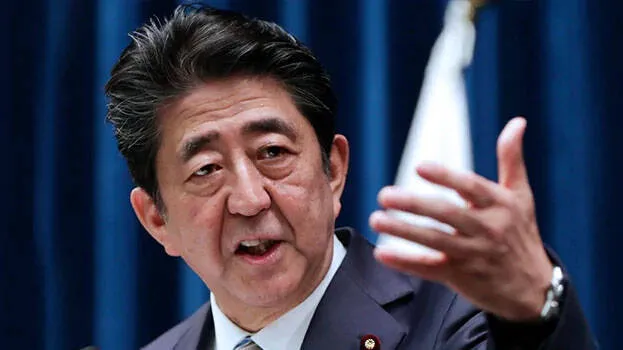

Shinzo Abe was a leader who played a crucial role in modernizing Japan. Abe, who was the longest-reigning Prime Minister of Japan, was shot dead by an assailant during the election campaign. This news has caused shock and anxiety not only in Japan but in the entire world. Japan is generally a land of peaceful people. Gun culture had not affected the people of Japan, who experienced the tragedy of the atomic bomb at the end of World War II in full measure. In such a country, the killing of the most beloved leader in broad daylight worries all peace lovers.
As far as India is concerned, it has lost a dear friend through Abe's death. Shinzo Abe was a leader who publicly declared that he would be India's friend for life. In 2014, he was the chief guest at the Indian Republic Day. Abe arrived at the invitation of Manmohan Singh, who was then Prime Minister. Narendra Modi had a good relationship with Abe when he was the Chief Minister of Gujarat. When Modi became the Prime Minister, the relationship between the two countries became stronger. Japan was one of the first countries that Modi visited after becoming Prime Minister.
A great statesman and administrator, Abe had always been a well-wisher of India. His contribution to strengthening India-Japan relations can never be forgotten. Abe had visited India several times.
In 2021, India expressed its love and respect for Abe by bestowing Padma Vibhushan, one of the country's highest honours.
During Abe's tenure as Prime Minister, Japan took the initiative to invest in India and participate in development projects. Japan cooperated with India in many development projects and trade deals, including the Ahmedabad-Mumbai bullet train project. It was on the basis of the deep friendship between Abe and Modi that Japan came forward to participate in some initiatives in Varanasi, the Prime Minister's constituency. It is in the context of his warm relationship with Abe that Prime Minister Narendra Modi, in his condolence message, said that he lost his dear friend.
Shinzo Abe is the scion of a large family that held positions of power in Japan. His grandfather and uncle have been Prime Ministers of Japan. His father, Shintaro Abe, had served as the foreign minister. But more than all of them, Shinzo Abe grew up to be the leader who won the hearts of the Japanese people After completing his studies, Abe joined a steel company and became an active member of the Liberal Democratic Party. He also worked as his father's secretary when he was the foreign minister. In 1993, Abe was elected to the National Diet, the lower house of the Japanese Parliament. Later, he held many important posts. Abe quickly became a favorite among the Japanese people as he railed against North Korea's anti-Japanese activities.
Abe became prime minister in 2006 when Junichiro Koizumiresigned. Abe thus became Japan's youngest prime minister and the first Japanese prime minister to be born after World War II. After a year as prime minister, he resigned due to ill health. He later returned to office in 2012 with full health. After that, Abe was continuously brought to power by the people. He stepped down as prime minister in 2020 when his colon disease worsened. Still, his words and stances were highly valued by the Japanese government
It was Abe's policies that built Japan into an economic powerhouse. His economic views, known as Abenomics, were far-sighted. Abe had played a significant role in the giant leap in electronics technology and bringing women into the mainstream of society. Japan will never forget Abe's contribution to making Japan a force and an open society that cannot be ignored by the world's nations. It was Abe who turned the country into military power. He overcame all the objections raised against it.
Abe had strategically defended China's invasion of the Senkaku Islands. Abe was also instrumental in the formation of QUAD, a quadrilateral alliance of Japan, India, the United States, and Australia.
The Japanese people are deeply saddened by the untimely death of their leader. India has also declared a day of national mourning as a mark of respect to Abe. There is no doubt that time will inscribe Shinzo Abe's name in golden letters so that he will be remembered forever in Japan's history.